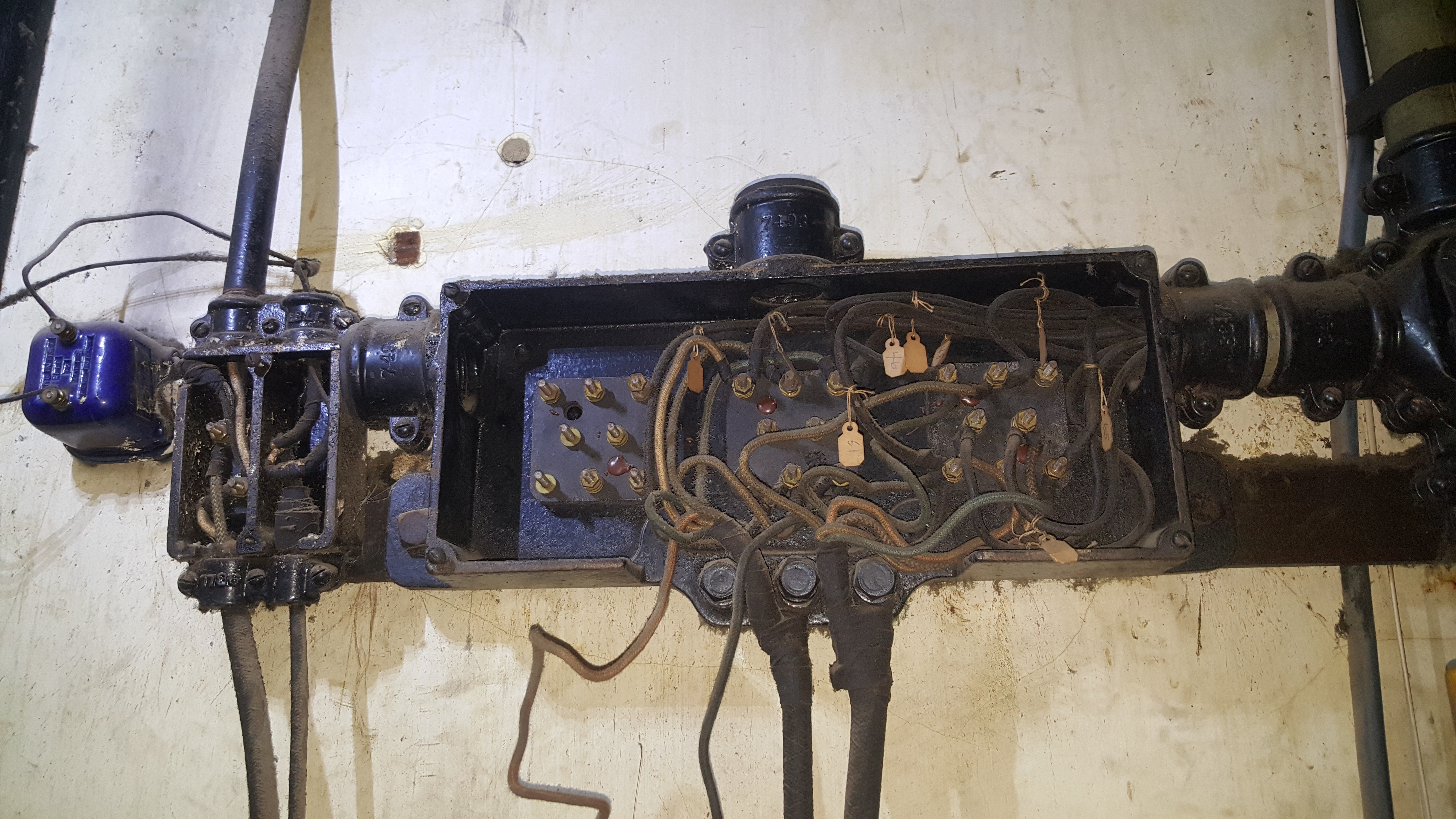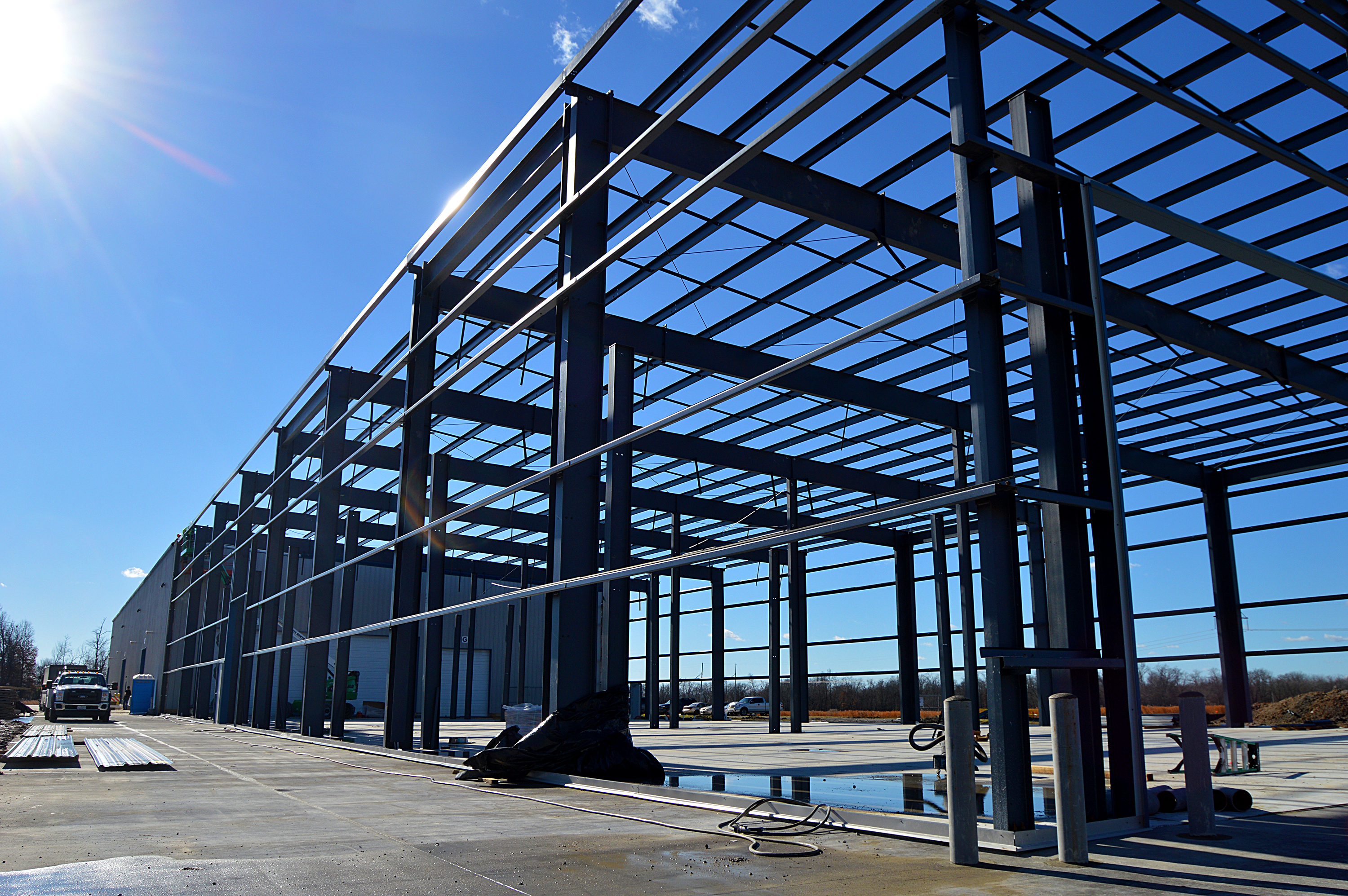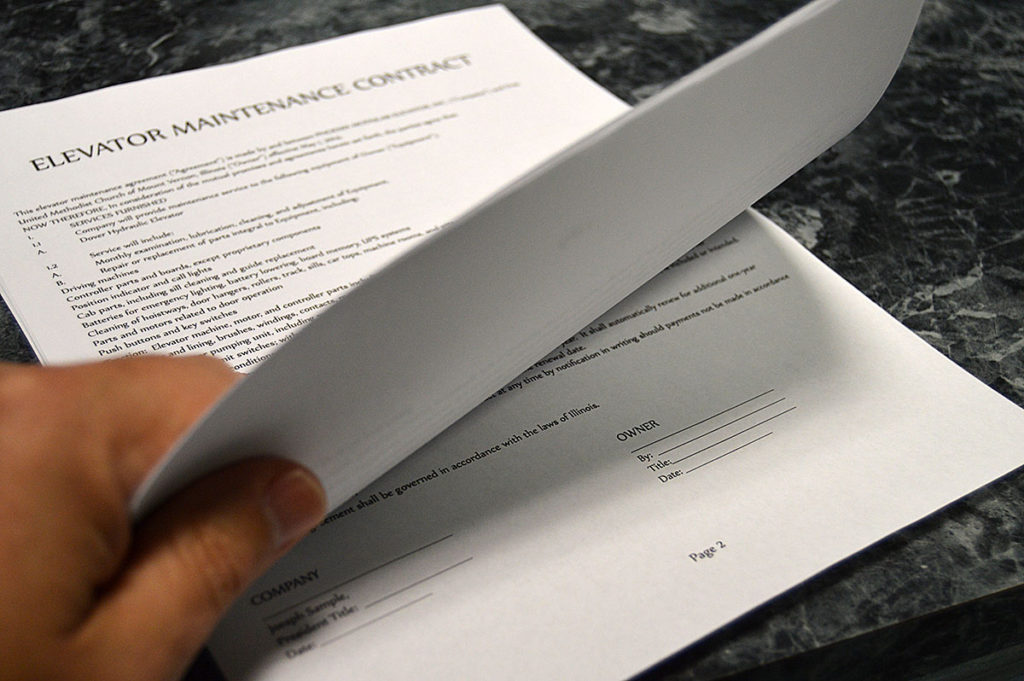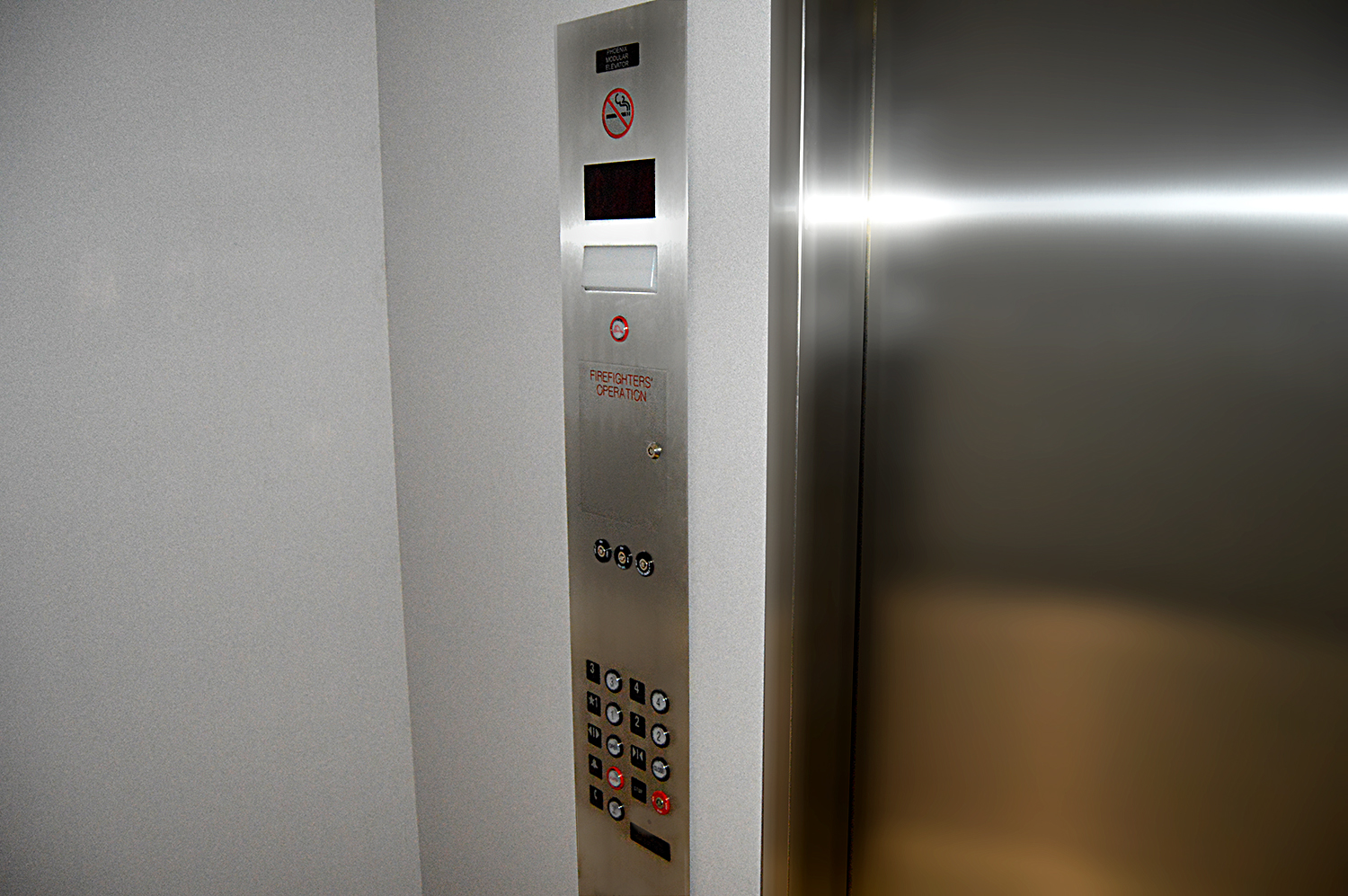
Maintenance Means Long Life
January 10, 2019
Phoenix Modular Elevator Legacy
January 15, 2019
Boring Old Elevator Contracts
I remember buying my first house. I was so anxious to move in that I barely perused the mounds of paper in front of me. The banker kept pushing documents towards me and I continued to sign. Promissory note? Title insurance? Escrow? I had no idea. I just knew to get the house, I had to scribble my John Hancock about a million times. I don’t know who said, “A signature is worth less the more it is signed.” But if that is true, mine wasn’t worth a plug nickel after that day. Or maybe it was the interest rate I agreed to?
In any case, the hard part of a major purchase is usually the contract.
Below is a list of the important components of an elevator maintenance contract and what they mean. It is our hope to help you navigate elevator ownership a bit better.
- Scheduled Maintenance – In basic terms, this is how often the elevator technician shows up to check on things and make adjustments to your elevator. The standard used to be one visit per month, but contracts have evolved, meaning fewer visits. Now, in some contracts, there is no specified number of visits at all. This can lead to a weird dynamic where you are paying a monthly invoice, but you are seeing your elevator technician quarterly or even less. To combat this, pay special attention to the frequency promised. Once you get the service you are paying for, always have someone assigned to check the log that every elevator should have and make sure they are doing what was promised. One ingenious building owner changed the key to the machine room so she knew exactly when the technician finally showed up. Turns out they were not living up to the promises in the contract.
- When will the contract end? – The longer the contract, the better the price, right? Not always. That is why it is important to shop contracts, prices and duration before you sign on the dotted line. Also, remember with longer contracts, you run the risk the company’s service will go downhill, and then you have little or no recourse. Of course, if the same company is responsible for maintenance over a longer period of time, there is a chance that they will try to keep up with routine maintenance so larger problems won’t pop up. A balanced approach with a trusted company is probably a better strategy than annual negotiations or a 10-plus year commitment.
- Automatic Renewals – You probably can’t find an elevator contract without an automatic renewal clause. It protects the customer from a contract running out, the elevator breaking down and there not being an agreement in place to make the repairs at a reasonable price. However, this has become the most lopsided aspect of most elevator maintenance agreements. That is because most building owners are not watching the sand run through the hourglass on a five-year contract closely enough to cancel the contract according to the terms. There is usually a three month window of cancellation before the term ends, and if you miss it, too bad, so sad. You are stuck for another contract term. Our advice is cancel your contract now through certified letter. It doesn’t matter if there are still years on the deal; cancel immediately, then keep proof of the cancellation in your file. This way, you can always get out of it at the end of the term. This can help with negotiation for the next contract as well.
- What’s covered? – One of the most frustrating things about elevator contracts for the building owner or manager is when a repair is needed, but the broken part is not covered. Make sure to see if ropes, motors, tanks, jacks, traveling cables, pumps and controllers are covered. This way, you can compare apples to apples when shopping the contract.
- Exclusions Apply – No contract will cover everything, so it is a good idea up front to know what is not covered. Some of the most notable items usually excluded include: any damage due to vandalism, proprietary parts (never buy an elevator with proprietary parts), the machine room walls and doors, obsolete parts and buried pipes, liners and casings. Lastly, anything outside the control of the elevator contractor, including damage due to power fluctuations or leaving a dirty elevator door sill, won’t be covered. You can’t believe how many times elevators are down due to a small pebble in the sill track with repairs all at the owner’s expense.
The above symptoms are just the tip of the iceberg. There can be even more reasons but, most often it is a lethal combination of all or several of the points above that spell the demise of the old white whale you have in your building. If you are not sure if you need a new elevator, feel free to contact us for a realistic discussion about when it is time to replace or modernize.



